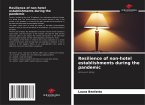The control of the urban area is based on the coordination of all the areas involved in the action and requires cooperation in several forms. The actions carried out there are characterized by significant decentralization, great reversibility, their simultaneity and strong logistical sufficiency. The force must have a common base of skills and each operational function must master the particularities of its field related to the urban environment. Commitments in urban areas can very quickly take on an exceptional and irrational character which escapes the forces present and leads them to higher bids initially refused. The force can thus be gradually forced to seize or defend areas or points of high symbolic value, the control or destruction of which can confer a major psychological advantage on one or other of the parties. In 2025, more than 85% of the population will live in large cities and in particular in unstable areas of the planet: places of population concentration, grouping of services and administrations, network convergence points, traffic areas, etc. .
Bitte wählen Sie Ihr Anliegen aus.
Rechnungen
Retourenschein anfordern
Bestellstatus
Storno








